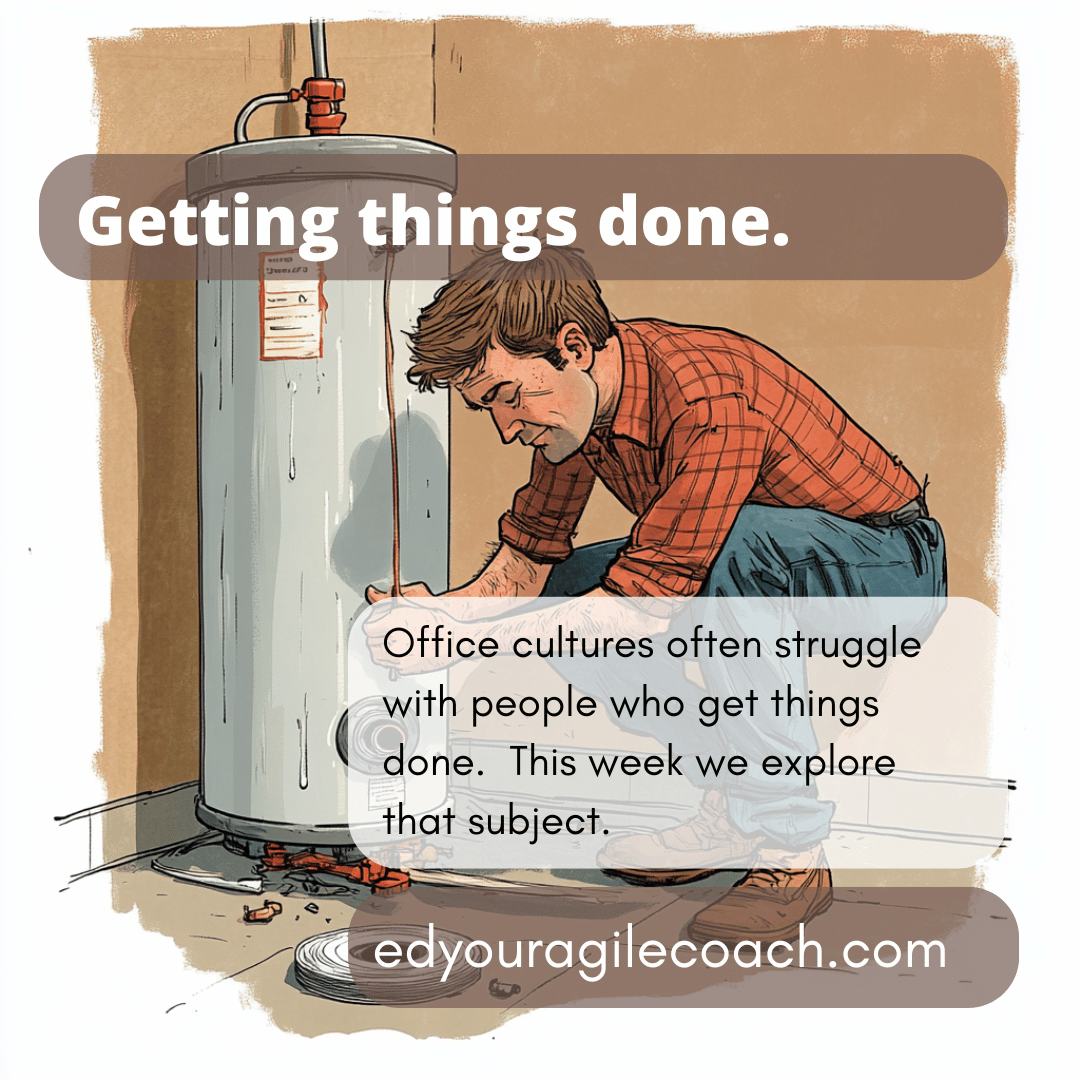Understanding the people who hold your organization together.

I have worked as a technology professional for over twenty years. During that time, my biggest challenges were not technology but interpersonal skills with colleagues, managers, and customers. I have plenty of emotional scars from the experience, and the main reward for my adventures has been career instability and a nagging sense of anxiety that accompanies every business interaction. It is because I struggle with the unwritten rules of work pointed out by Dr. Anna Kallschmidt and the unique role that I am often thrown into when I join an organization. Today, I want to cover the plight of the necessary and disposable work done by people like me.
David Graeber, in his book, "Bullshit Jobs," talks about specific jobs in corporate culture which have cropped up over the last century. Some of these tribes are known as goons who act as cultural enforcers and police within the organization. These are people who dish out emotional and psychological cruelty to keep employees in line and can be anyone in the organization who enforces the company's way of work.
Another tribe is called duct tappers, representing the necessary people who get things done in an organization despite cultural dysfunction and inertia. In his substack newsletter "The Beautiful Mess," John Cutler describes those professionals as "glue people." These are folks with tremendous responsibility and little authority. Acting as project managers, technology leads, and coordinators, they often do not fit neatly into the corporate organization chart. They are not traditional management roles but are people charged with getting work done and are willing to upset others to make things happen in the organization. For managers trained to be likable and go along with corporate dysfunction as an advancement strategy, it creates plenty of resentment.
I experience this regularly as a scrum master when I ask for network resources or help from leaders because the organization chart often lists me as a consultant or line employee. These leaders usually perceive me as a threat because I am delivering work in a fashion they could not understand. We often do not understand office politics or the sensitivities surrounding decisions. We are necessary because we help get work done. Yet, we are only summoned to act like glue or a roll of duct tape in times of crisis. Otherwise, we are discarded as expendable.
It explains why you do not see duct tapers at organizations for over five years. We see too much and know too much within the company and either quit in frustration or are managed out of the organization as promotions and compensation fail to materialize. The log-rolling manager who remains innocuous can find a home within an organization. Often, people treat the duct-taping employees as if they were heretics to be silenced.
It undermines a person's self-worth living this life because you are treated as disposable and without worth when building things and getting things done. As a duct taper, you solve problems and avoid hurting too many feelings and skewering too many sacred cows in the organization. You would expect business people to respect results and performance. However, many corporate performance reviews often resemble figure skating judging. You must hit the problematic jumps and maneuvers, but you must make it look easy without showing any fatigue. Frequently, when getting things done in an organization, you are putting in lots of strenuous effort and highlighting the defects within the company. The effort rarely gets style points for execution.
The situation is not a significant problem in management consulting. If you deliver a solution, the client will renew you, or the company will assign you to a different client who needs your help. It worked for me, but the economy for management consultants dried up as interest rates increased and business leaders attempted to constrain costs. I am collateral damage in that macroeconomic trend as the banking and insurance industry sees me as an unnecessary expense and an outsider to the organizational culture. It will change as interest rates fall and business people discover that their management team is good at keeping up appearances but not delivering progress.
It is easy to become nihilistic and cynical about this situation, but I imagine that the pharaohs of Egypt needed scribes and engineers to keep the empire running. Without the literate monks and educated clergy, the Middle Ages might have become a giant step backward instead of the cultural intermission it was. The Industrial Revolution would not have happened without the collection of engineers, office workers, misfits, and innovators who helped make the vision of robber barons a reality. I consider myself part of this cohort, which has been a constant part of the history of civilization and capitalism. It is a nice legacy to be associated with.
Instead of contempt for the project managers, business analysts, and other ambiguous roles at the office, show some respect because we get stuff done. We suffer the fools and foibles of corporate life because if we did not, less work would happen, and eventually, the organization would stagnate. You may not like or understand the corporate duct tapers, but they are the glue that holds most of corporate America together. It is not a role for everyone, but I cannot see any other way to conduct my career.
Until next time.




Comments ()